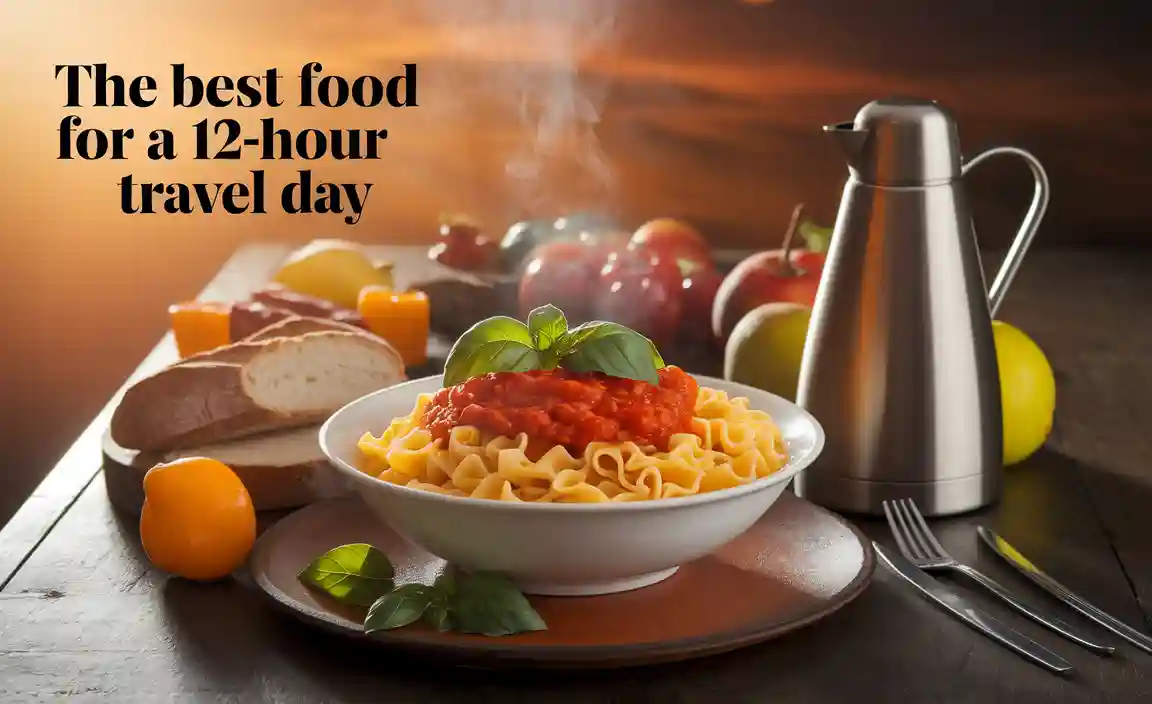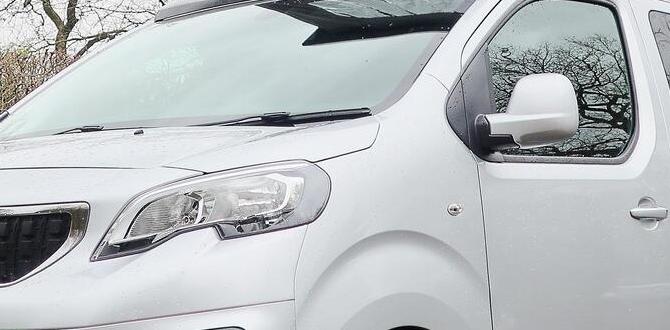Quick Summary
Traveling to the Basque Country is more affordable than many expect. A realistic daily budget for a comfortable trip, covering accommodation, food, transport, and activities, typically ranges from €80 to €130 per person. Planning wisely can help you enjoy this vibrant region without overspending.
The Basque Country is a dream destination for many travelers, offering stunning coastlines, unique culture, and mouthwatering cuisine. But before you pack your bags and book your flights, a common question pops up: “How much will this cost?” It’s easy to feel overwhelmed by budgeting for a new place. You want to experience the best of the Basque Country without emptying your wallet. Don’t worry! This guide breaks down the essential daily costs, making your trip planning smooth and stress-free. We’ll help you create a realistic budget so you can relax and enjoy every moment. Get ready to discover how achievable your Basque adventure truly is!
Understanding Basque Country Travel Costs
The Basque Country, spanning parts of northern Spain and southwestern France, offers incredibly diverse experiences. From the bustling streets of Bilbao and San Sebastián to the charming coastal villages and the green rolling hills inland, there’s something for everyone. This variety naturally impacts travel costs, but understanding the main budget categories is the first step to smart planning. We’ll look at accommodation, food and drink, transportation, and activities. Knowing these will empower you to make informed decisions and create a daily budget that fits your travel style.
Factors Influencing Your Budget
Several key factors will play a role in determining your daily spending in the Basque Country. Being aware of these from the outset will help you adjust your expectations and plans accordingly.
- Time of Year: Like most destinations, prices for accommodation and some activities can be higher during peak season (summer months, major holidays) and lower during the shoulder or off-peak seasons.
- Location Within the Basque Country: Major cities like San Sebastián and Bilbao tend to be more expensive than smaller towns or rural areas. For example, dining in San Sebastián’s Old Town will likely cost more than in a village on the coast.
- Travel Style: Are you a budget backpacker, a comfort-seeking traveler, or looking for a touch of luxury? Your choices in accommodation, dining, and activities will directly influence your daily spend.
- Pace of Travel: Spending more time in fewer places can sometimes be more cost-effective than constantly moving. Slow travel allows for more local immersion and can reduce transportation costs.
- Activities Planned: Some activities, like visiting world-class museums or taking guided tours, come with an entry fee. Others, like hiking or exploring local markets, are free or very low cost.
- Dietary Preferences: While Basque cuisine is a highlight, the cost of eating out can vary. If you plan to dine at Michelin-starred restaurants, your food budget will be significantly higher than if you opt for pintxos bars or cook some meals yourself.
Basque Currency and Payment
The currency used throughout the Basque Country (both the Spanish and French parts) is the Euro (€). Credit and debit cards are widely accepted in most hotels, restaurants, shops, and larger attractions. However, it’s always a good idea to carry some cash for smaller purchases, local markets, small cafes, or rural bus tickets. ATMs are readily available in towns and cities.
Daily Budget Breakdown: Essentials
Here’s a look at the typical daily costs you can expect for accommodation, food, transportation, and activities. We’ll offer a range to accommodate different travel styles.
Accommodation Costs
Your choice of lodging is often the biggest variable. The Basque Country offers a range of options, from budget-friendly hostels to boutique hotels and luxury stays.
| Accommodation Type | Estimated Daily Cost (per person, double occupancy) | Notes |
|---|---|---|
| Hostel (Dorm Bed) | €25 – €45 | Great for solo travelers and those on a tight budget. Offers social interaction. |
| Budget Hotel/Guesthouse (Private Room) | €40 – €70 | Simple, clean rooms, often with shared bathrooms or basic en-suite facilities. Good value for couples or solo travelers wanting privacy. |
| Mid-Range Hotel (3-star equivalent) | €60 – €100 | Comfortable rooms, often with private bathrooms, breakfast options, and more amenities. Centrally located in cities. |
| Boutique Hotel / Higher Mid-Range | €90 – €150+ | Stylish rooms, often with excellent service and prime locations. |
| Apartment Rental (e.g., Airbnb) | €50 – €120+ | Can be cost-effective for longer stays or groups/families. Offers kitchen facilities, allowing for some self-catering. Price varies wildly by size and location. |
Tip: Booking accommodation in advance, especially during peak season, is crucial for securing better prices and availability. Consider staying slightly outside the absolute city center for potential savings, provided public transport is convenient.
Food and Drink Expenses
Basque cuisine is a major draw, and thankfully, you can enjoy delicious food without breaking the bank. Pintxos, the Basque version of tapas, are a fantastic way to sample a variety of local flavors affordably.
| Meal Type | Estimated Daily Cost (per person) | Notes |
|---|---|---|
| Breakfast | €4 – €10 | Typically coffee and a pastry or toast at a local café. Some accommodations include it. |
| Lunch | €10 – €20 | Could be a “menu del día” (set lunch menu) in more casual eateries, a hearty pintxo crawl, or sandwiches from a bakery. |
| Dinner | €15 – €40+ | For casual pintxos hopping, a sit-down meal in a moderate restaurant, or a higher-end dining experience. Drinks are extra. |
| Snacks/Coffee/Water | €3 – €7 | Grabbing an extra coffee, a pastry, or a bottle of water on the go. |
| Drinks (e.g., wine, beer, cider) | €5 – €15+ | Cost varies based on quantity and type of beverage. Local sagardoa (cider) or txakoli (white wine) can be great value. |
Average Daily Food Spend:
- Budget Conscious: €30 – €50 (Utilizing bakeries, picnics, fewer sit-down meals, and focusing on affordable pintxos.)
- Mid-Range Traveler: €50 – €80 (Enjoying a mix of pintxos, daily menus, and a few sit-down dinners.)
- Foodie Enthusiast: €80+ (Indulging in more elaborate pintxos, à la carte dining, and perhaps a tasting menu.)
Pro-Tip: Look for “Menú del Día” offered during lunchtime on weekdays. These comprehensive set menus (starter, main, dessert, drink) are usually incredibly good value. Also, explore local markets like Mercado de la Bretxa in San Sebastián or Mercado de la Ribera in Bilbao for fresh, affordable produce if you have self-catering facilities.
Transportation Costs
Getting around the Basque Country is generally efficient and relatively affordable, especially within cities and between major towns.
- Within Cities (Bus/Metro/Tram): Single tickets usually cost between €1.20 and €2.50. Purchasing a multi-day travel card or topping up a rechargeable card can save money. Many cities like Bilbao and San Sebastián are very walkable, especially their central areas.
- Intercity Buses: Services like PESA, ALSA, and La Unión operate extensively. A journey between Bilbao and San Sebastián (approx. 1 hour 15 minutes) might cost around €10-€15.
- Trains: While primarily served by regional trains in Spain (Renfe) and SNCF in France, train travel can be slower for some regional routes compared to buses but offers scenic views. The Euskotren is a local train/tram system connecting coastal towns and cities in Spain. A ticket between Bilbao and San Sebastián via Euskotren (a longer, more scenic route) might cost slightly more than the bus, around €15-€20 for the full journey.
- Car Rental: Renting a car offers the most flexibility, especially for exploring rural areas. However, prices can range from €30 to €70+ per day, plus fuel, parking (which can be expensive in cities), and potential tolls. This is often more economical for groups or families traveling longer distances.
- Taxis/Ride-Sharing: Use these sparingly for budget travel, as they are the most expensive option. A short city ride could be €7-€15, while longer distances can add up quickly.
Estimated Daily Transportation Cost (assuming moderate use): €5 – €20 per person. This can be higher if renting a car or taking longer train/bus journeys frequently.
Activities and Sightseeing Costs
The Basque Country offers a wealth of experiences, from world-class museums to stunning natural landscapes, and the costs vary.
- Museums and Attractions:
- Guggenheim Museum Bilbao: Around €16-€18
- Guggenheim Bilbao (with temporary exhibition): Around €18-€20
- San Telmo Museum (San Sebastián): Free entry generally, or around €6 for temporary exhibitions.
- Chillida Leku Museum (near San Sebastián): Around €10-€12
- Aquarium San Sebastián: Around €10-€13
- Palacio de Miramar (Gardens): Free; tours of the palace have a fee, around €5-€7
- Guided Tours: Food tours, city walking tours (often tip-based or €15-€30), or specific tours (e.g., vineyard tours) can range from €30 to €100+.
- Outdoor Activities: Hiking in national parks like Urdaibai Biosphere Reserve (UNESCO) or along the coast is free. Cable car rides (e.g., Funicular de Artxanda in Bilbao) are typically around €3-€5 round trip.
- Cultural Experiences: Attending a Basque pelota (jai alai) game can cost from €10-€30.
Estimated Daily Activities Spend: This is highly variable based on your interests. A frugal traveler might spend €0-€15 per day on activities (focusing on free sights and walks), while someone wanting to visit major museums and take tours could spend €30-€60+ per day.
Sample Daily Budgets
To give you a clearer picture, here are a few sample daily budgets for one person, covering the essentials:
| Budget Category | Budget Traveler (€) | Mid-Range Traveler (€) | Comfort Traveler (€) |
|---|---|---|---|
| Accommodation (per person avg.) | 35 | 70 | 120+ |
| Food & Drink (3 meals + extras) | 45 | 65 | 90+ |
| Transportation (local, occasional intercity) | 10 | 15 | 20 |
| Activities & Sightseeing | 15 | 30 | 50+ |
| Contingency/Souvenirs | 10 | 20 | 30+ |
| TOTAL DAILY ESTIMATE | €115 | €200 | €310+ |
Please note: These are higher-end estimates for the total per person daily spend. If you remove the higher accommodation costs and assume sharing a room, the ranges would adjust significantly. For example, two people sharing a €100 hotel room would each pay €50 for accommodation.
Let’s refine this based on solo travel where accommodation is the full room cost, and then consider sharing:
Solo Traveler Daily Budget
- Hostel/Budget Room: €25 (accom.) + €45 (food) + €10 (trans.) + €15 (act.) + €10 (misc.) = €105
- Mid-Range Hotel: €70 (accom.) + €65 (food) + €15 (trans.) + €30 (act.) + €20 (misc.) = €200
Couples or Friends Sharing a Room (per person)
Assume a €100/night hotel room, so €50 per person for accommodation.
- Mid-Range Experience: €50 (accom.) + €65 (food) + €15 (trans.) + €30 (act.) + €20 (misc.) = €180 total per person
- Budget Conscious (sharing a hostel or budget hotel): €35 (accom.) + €45 (food) + €10 (trans.) + €15 (act.) + €10 (misc.) = €115 total per person
Tips for Saving Money in the Basque Country
Even on a moderate budget, you can maximize your enjoyment and savings with these practical tips.
- Embrace Pintxos Culture: Instead of a sit-down dinner, hop between pintxos bars earlier in the evening. You can try many different tastes for a fraction of the cost of a formal meal.
- Take Advantage of “Menú del Día”: As mentioned, these weekday lunch deals are phenomenal value for money.
- Walk & Use Public Transport: Basque cities are very walkable. Utilize buses and trams for longer distances instead of taxis or car rentals if you’re not exploring rural areas extensively.
- Cook Some Meals: If your accommodation has kitchen facilities, visit local markets for fresh produce and enjoy a few homemade meals. This is especially good for breakfast and picnic lunches.
- Seek Out Free Activities: Enjoy the stunning beaches, hike scenic trails, explore charming old towns, and relax in public parks. Many of the Basque Country’s greatest assets are free.
- Book in Advance: Flights and accommodation are generally cheaper when booked well ahead of time, particularly for popular destinations and peak seasons.
- Travel in the Shoulder Season: Consider visiting in spring (April-May) or autumn (September-October). The weather is often pleasant, crowds are smaller, and prices for accommodation and flights can be lower.
- Look for City Cards: Some cities offer tourist cards that include free public transport and discounted entry to attractions. Research if Bilbao or San Sebastián offer such passes and if they align with your planned activities.
- Hydrate Smartly: While tap water is safe to drink in Spain, many people prefer bottled water. Buying larger bottles from supermarkets is much cheaper than purchasing small ones at cafes or attractions.
Essential Packing for Comfort and Convenience
While budgeting is key, comfort and preparedness make travel smoother, especially when managing personal needs. As Michael C. Herrera from Journey Essentials, I always advocate for packing smart. Consider layers for the changeable Basque weather, comfortable walking shoes (you’ll do a lot of exploring!), and any personal care items






